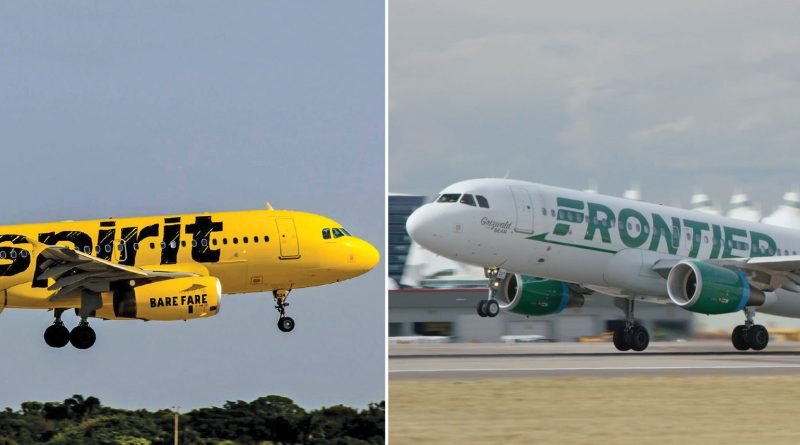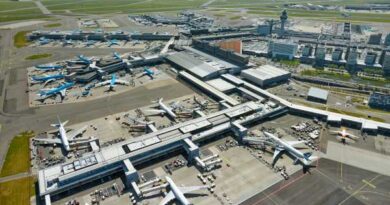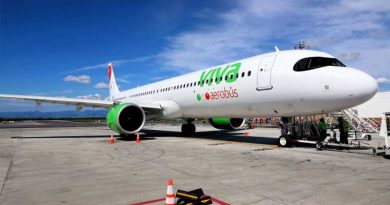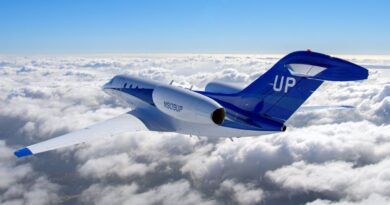Will a Frontier-Spirit merger get the DOJ's blessing?
Executives at Frontier and Spirit are promising that strong consumer benefits would be one result of the proposed merger the two ultralow-cost carriers announced last week.
But in order for the merger to happen, the airlines will have to make their case successfully to regulators at the Justice Department, which last year showed an appetite for halting airline partnerships when it sued to break up the American Airlines-JetBlue Northeast Alliance.
On Feb. 7, Spirit and Frontier announced an agreement for Frontier to buy 51.5% of its larger competitor for $2.9 billion. Including debt and liabilities, the deal has a transaction value of $6.6 billion, the carriers said.
With a merger, Spirit and Frontier would move from the seventh- and eighth-largest U.S. airlines, respectively, to the fifth largest, behind American, Delta, United and Southwest. Among the networks of the 10 primary mainline U.S. carriers, Spirit and Frontier are scheduled to operate a combined 5.5% of the flights this quarter. Merged, they would offer more than 1,000 daily flights to over 145 destinations in 19 countries.
As they made their case for the merger last week, leaders of Spirit and Frontier argued that together they’d become viable in more markets. For example, Frontier CEO Barry Biffle said that the carrier was not able to successfully serve Jackson, Miss., on its own. But he said he believes Jackson would be a potential market for the combined airlines. Biffle cited Eugene, Ore., which is currently served by Allegiant, as a new city the merger would enable Frontier to enter.
Spirit and Frontier also said that by combining they’ll offer more frequencies in big markets and therefore be able to better reaccommodate customers when flights are canceled. For example, Spirit serves Baltimore-Orlando three times daily, while Frontier flies that route twice daily. At a combined five times daily, bargain flyers would gain new service options.
“This merger is completely different than any other merger in the past in the U.S.,” Biffle said. “This is not about reducing competition and raising fares. This is about getting more low fares to more people in more places, and we’re excited to tell our story to [regulators], and we think it will be well received.”
The two carriers have history on their side. Over the past two decades, the DOJ has greenlighted six large U.S. commercial airline mergers, resulting in the disappearance of stalwarts including TWA, Northwest and US Airways. The most recent large merger, between Alaska and Virgin America, closed in 2016.
But gaining merger approval from the Biden administration could potentially prove more challenging. Last summer, Biden signed a sweeping executive order designed to promote competition in the American economy. Then, in September, the DOJ sued American and JetBlue in an effort to break up their new alliance in Boston and the New York area, arguing that it will cause hundreds of millions of dollars in harm to consumers. That case is pending.
Some advocacy groups have already signaled that they’ll fight the proposed merger.
“It should get a hard look by the DOJ,” said Diana Moss, president of the American Antitrust Institute. “Frontier and Spirit, as ultralow-cost carriers, inject important competitive discipline into domestic passenger markets. Without that dynamic, the Big Four will be even less restrained in coordinating to set fares, ancillary fees and quality of service.”
Moss cited Las Vegas and Orlando as markets where competition would be highly impacted by a merger.
“Southwest and the new merged airline would have between 50% to 60% of those markets. That is a duopoly, or the worst form of oligopoly, where players have strong incentives to collude rather than compete,” she said.
But Kerry Tan, an associate economics professor at Loyola University Maryland’s Sellinger School of Business who has published research papers about airline mergers, views the matter differently. He predicted that the DOJ will ultimately approve a Spirit-Frontier merger, in part because so much of each carrier’s value proposition revolves around keeping fares aggressively low.
“If the combined Frontier-Spirit airline raises prices, then leisure travelers can easily look elsewhere and fly with a rival airline like Southwest or American,” Tan said. “The potential cost savings and improvement to product quality in terms of the number of destinations or on-time performance seems to outweigh the potential concern over higher airfares.”
Source: Read Full Article



